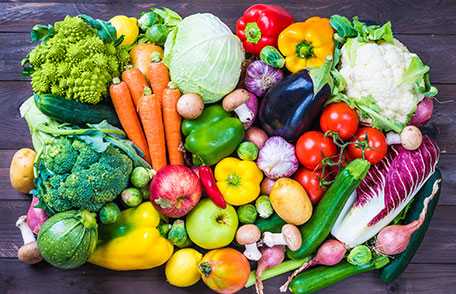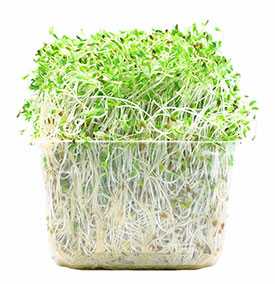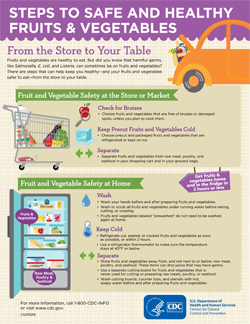Fruit and Vegetable Safety
ALERT: Outbreak Linked to Salmonella
CDC, FDA, and several states are investigating an outbreak of Salmonella infections linked to Maradol papayas imported from Mexico. If you have any Maradol papayas from Mexico in your home, throw them away. Read our advice to consumers.

Eating a diet with plenty of fruits and vegetables provides important health benefits when you select and prepare them safely.
Fruits and veggies add nutrients to your diet that help protect you from heart disease, stroke, and some cancers. And choosing produce including vegetables, fruits, and nuts—instead of high-calorie foods also helps you manage your weight.
But sometimes raw fruits and vegetables may contain harmful germs, such as Salmonella, E. coli, and Listeria, which can make you and your family sick with food poisoning. In the United States, nearly half of foodborne illnesses are caused by germs on contaminated fresh produce.
Safer choices for fresh produce are washed fresh vegetables, including salads, and cooked vegetables. Unwashed fresh vegetables, including lettuce and salads, are more likely to make people sick with a foodborne illness.

Cook sprouts thoroughly to reduce the risk of illness.Sprouts are a particular concern because the warm, humid conditions needed to grow sprouts also are ideal for germs to multiply. Therefore, eating raw or lightly cooked sprouts may lead to food poisoning. It’s especially important to avoid raw sprouts if you are in a group more likely to get a foodborne illness: pregnant women, young children, older adults, and people with weakened immune systems.
Learn about Salmonella and E. coli outbreaks linked to sprouts in 2016.
Enjoy uncooked fruits and vegetables while taking steps to avoid food poisoning.
- Check fruits and vegetables for bruising and damage .
- Throw away fruits and vegetables that are spoiled or have been recalled.
- Wash your hands, kitchen utensils, and food preparation surfaces, including chopping boards and countertops, before and after preparing fruits and vegetables.
- Clean fruits and vegetables before eating, cutting, or cooking, unless the package says that the contents have been pre-washed.
- Wash or scrub all fruits and vegetables under running water—even if you do not plan to eat the peel—so dirt and germs are not transferred from the surface to the inside when you cut the produce.
- Dry fruit or vegetables with a clean paper towel.
- Keep fruits and vegetables separate from other foods that could contaminate them, such as raw meat and seafood.
- Refrigerate fruits and vegetables that you have cut up, peeled, or cooked as soon as possible, or within 2 hours. Refrigerate within 1 hour if the temperature outside is above 90°F. Chill them at 40°F or below in a clean container.
Anyone can get a foodborne illness, but people in certain groups are more likely to get sick and to have a more serious illness. These groups of people are:
- Young children
- Pregnant women
- Adults aged 65 and older
- People with weakened immune systems
If you or someone you care for has a greater chance of food poisoning, it’s especially important to take steps to prevent food poisoning when preparing and eating fresh fruits and vegetables.
More Information
More Information
- Steps to Safe and Healthy Fruits and Vegetables [644 KB]
- Gear Up for Food Safety [288 KB]
- CDC Food Safety
- CDC Vital Signs Report: Safer Food Saves Lives
- FDA Video: Safe Handling of Raw Produce and Fresh-Squeezed Fruit and Vegetable Juices
- FoodSafety.gov
- Be Food Safe: Four Simple Steps
- Why Is It Important to Eat Vegetables?
- Why Is It Important to Eat Fruits?
- Page last reviewed: August 7, 2017
- Page last updated: August 7, 2017
- Content source:
- National Center for Emerging and Zoonotic Infectious Diseases
- Page maintained by: Office of the Associate Director for Communication, Digital Media Branch, Division of Public Affairs




 ShareCompartir
ShareCompartir
